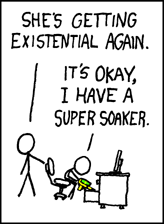Webcomic: Difference between revisions
CSV import |
No edit summary |
||
| Line 1: | Line 1: | ||
[[File:Dieselsweeties_01583.png|thumb|Dieselsweeties_01583]] [[file:Fetusx_fx082106painting.jpg|right|thumb|Fetusx_fx082106painting]] [[file:Xkcd_philosophy.png|right|thumb|Xkcd_philosophy]] [[file:Opráski_sčeskí_historje_chřezt.jpg|thumb|Opráski_sčeskí_historje_chřezt]] | [[File:Dieselsweeties_01583.png|thumb|Dieselsweeties_01583]] [[file:Fetusx_fx082106painting.jpg|right|thumb|Fetusx_fx082106painting]] [[file:Xkcd_philosophy.png|right|thumb|Xkcd_philosophy]] [[file:Opráski_sčeskí_historje_chřezt.jpg|thumb|Opráski_sčeskí_historje_chřezt]] | ||
A '''webcomic''' is a comic strip or comic book that is published primarily on the [[World Wide Web]]. While many webcomics are published exclusively online, some are also available in print. Webcomics can cover a wide range of genres and styles, and they often reflect the personal interests and artistic styles of their creators. | A '''webcomic''' is a comic strip or comic book that is published primarily on the [[World Wide Web]]. While many webcomics are published exclusively online, some are also available in print. Webcomics can cover a wide range of genres and styles, and they often reflect the personal interests and artistic styles of their creators. | ||
Latest revision as of 22:26, 31 December 2024




A webcomic is a comic strip or comic book that is published primarily on the World Wide Web. While many webcomics are published exclusively online, some are also available in print. Webcomics can cover a wide range of genres and styles, and they often reflect the personal interests and artistic styles of their creators.
History[edit]
The history of webcomics dates back to the early days of the internet. The first webcomics appeared in the mid-1990s, coinciding with the rise of the World Wide Web. Early webcomics were often simple and experimental, but as technology and internet access improved, so did the quality and diversity of webcomics.
Formats and Styles[edit]
Webcomics come in various formats, including single-panel comics, comic strips, and full-page comics. Some webcomics follow a traditional comic book format, while others experiment with the unique possibilities of the web, such as infinite canvas and animated panels.
Distribution and Monetization[edit]
Webcomics are typically distributed for free on the internet, but creators often use various methods to monetize their work. Common monetization strategies include crowdfunding platforms like Patreon, merchandise sales, and advertising. Some webcomic creators also publish their work in print, either through self-publishing or traditional publishing deals.
Community and Culture[edit]
The webcomic community is known for its supportive and collaborative nature. Many webcomic creators interact with their readers through social media, forums, and comment sections. This direct interaction allows creators to receive immediate feedback and build a loyal fanbase.
Notable Webcomics[edit]
Several webcomics have gained significant popularity and critical acclaim. Some notable examples include:
Impact on the Comic Industry[edit]
Webcomics have had a significant impact on the comic industry. They have democratized the creation and distribution of comics, allowing anyone with internet access to publish their work. This has led to a more diverse range of voices and stories in the comic world. Additionally, webcomics have influenced traditional comic publishers to explore digital distribution and online engagement with readers.
Related Pages[edit]
Categories[edit]
